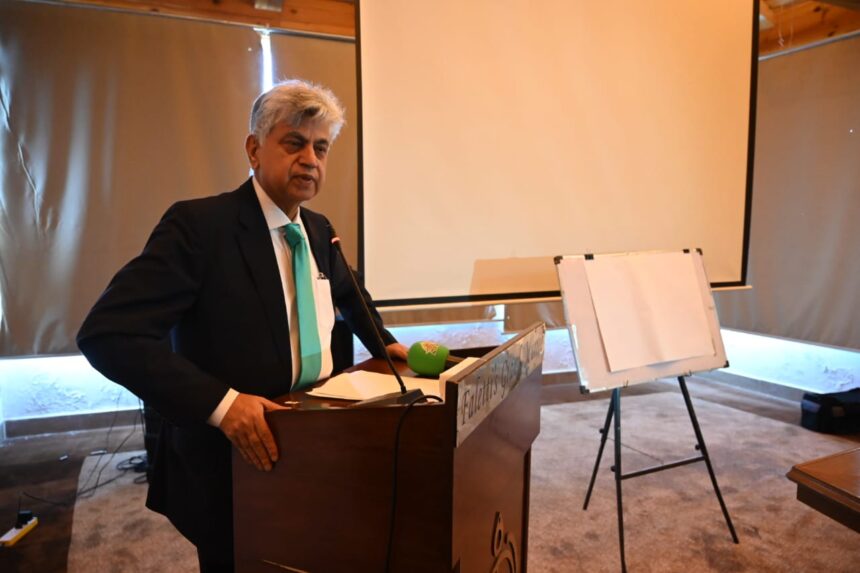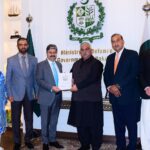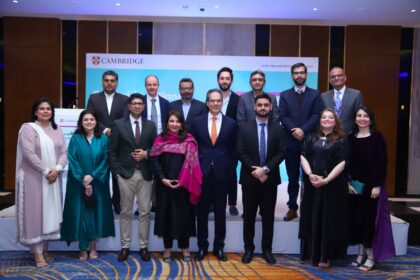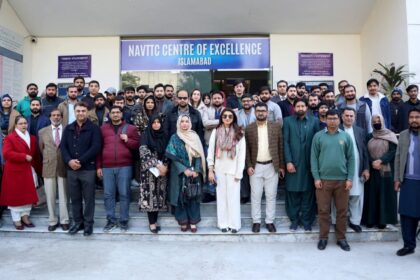Murtaza Solangi Urges Complete Ban on Tobacco Advertising and Calls for Stronger Enforcement of Health Warnings
ISLAMABAD – Spokesperson to the President of Pakistan, Murtaza Solangi, has called for a comprehensive ban on Tobacco Advertisement, Promotion, and Sponsorship (TAPS) and urged for stronger enforcement of Graphic Health Warnings (GHWs) to curb the country’s growing tobacco epidemic.
Speaking as Chief Guest at a two-day consultative session organized by the Society for the Protection of the Rights of the Child (SPARC) titled “WHO Global Tobacco Epidemic Report 2025 and Best Practices on TAPS and GHWs”, Mr. Solangi emphasized the urgency of decisive action.
He said, “The latest WHO Global Tobacco Epidemic Report delivers a message that is both stark and urgent: tobacco continues to kill, and if we do not intensify our efforts—particularly through bold actions like banning tobacco advertising, promotion, and sponsorship (TAPS) and increasing the size of graphic health warnings (GHWs)—we will continue to lose lives that could otherwise be saved.”
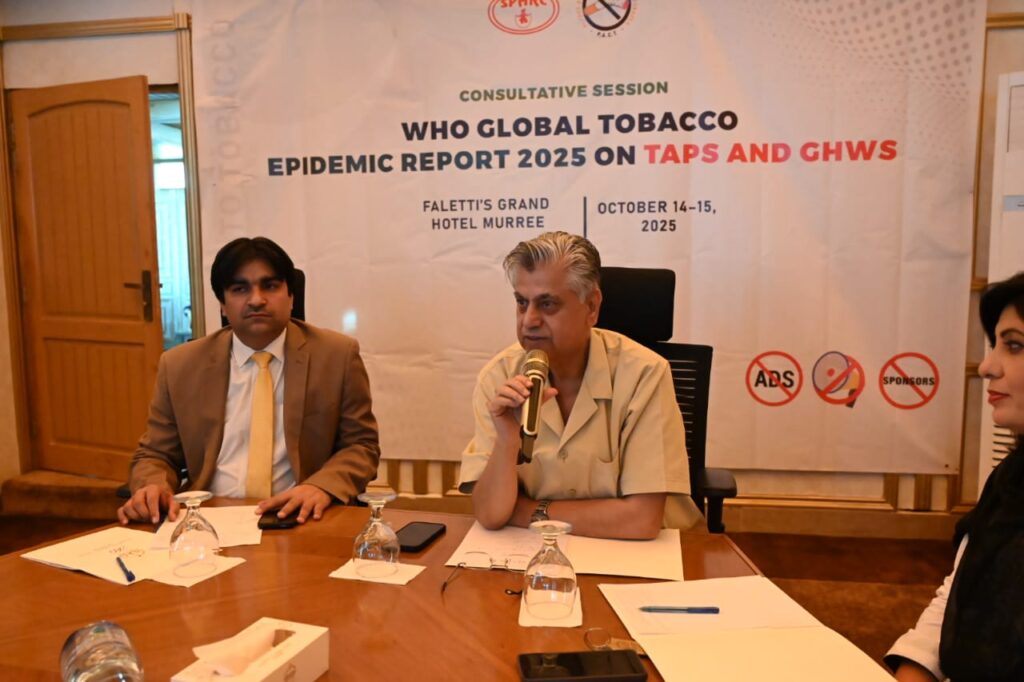
Highlighting the devastating human toll, Solangi pointed out that tobacco kills over 8 million people globally each year, exceeding the combined deaths from HIV, tuberculosis, and malaria. He added that Pakistan faces a similarly grim reality, with 27 million tobacco users and over 166,000 annual deaths from tobacco-related diseases.
He further noted that the impact of tobacco extends beyond health—damaging the economy, lowering productivity, and inflicting emotional and financial pain on families. Commending South Asia’s progress where tobacco use has dropped from 70% to 37%, Solangi expressed optimism that Pakistan could achieve similar success through consistent education campaigns, awareness initiatives, and international best practices.
Former Member of the National Assembly Dr. Nisar Ahmed Cheema said that beyond the alarming statistics, the growing attraction of tobacco among youth poses a major public health challenge. He highlighted that indirect marketing—through attractive packaging, event sponsorships, and online content—continues to make tobacco appear acceptable or even appealing to younger audiences.
Dr. Cheema urged the government to enforce stricter bans on all forms of TAPS, emphasizing that “large, image-based Graphic Health Warnings (GHWs)” can deter new smokers and encourage quitting. He called for closing policy loopholes and strengthening laws to counter these promotional tactics.
Dr. Khalil Ahmad Dogar, Program Manager at SPARC, underscored that despite restrictions, subtle marketing tactics continue to shape consumer behavior. Referring to WHO findings, he stated that countries implementing complete bans on TAPS witness significant declines in youth tobacco consumption. “The time has come for a total ban on all direct and indirect promotional means,” he said.
He added that robust, periodically updated graphic warnings serve as “life-saving interventions” proven to motivate quitting and prevent smoking initiation. While acknowledging Pakistan’s progress, Dr. Khalil urged authorities to “remove the remaining gaps and ensure full enforcement of tobacco control policies.”
Faisal Zahid Malik, Chairman and Editor-in-Chief of Pakistan Observer, highlighted the media’s vital role in shaping public health outcomes. “At Pakistan Observer, we consider it our duty to use our platform to raise awareness, encourage quitting, and hold all relevant stakeholders accountable for ensuring effective implementation of tobacco control measures,” he said.
Malik urged the media to prioritize integrity over profit, asserting, “We must choose to protect people over promoting profit.” He concluded by calling for collective national action, saying, “This is a fight we can win—but only if we act together, boldly, and decisively. Government, civil society, media, health professionals, educators, parents, and youth all have a role to play in building a tobacco-free generation.”
The SPARC session brought together policymakers, health experts, journalists, youth representatives, and civil society organizations, who jointly reviewed Pakistan’s implementation of WHO’s Framework Convention on Tobacco Control (FCTC) and its MPOWER strategies. Participants emphasized the urgent need for coordinated enforcement of TAPS and GHW regulations to accelerate the nation’s progress toward a tobacco-free Pakistan.




